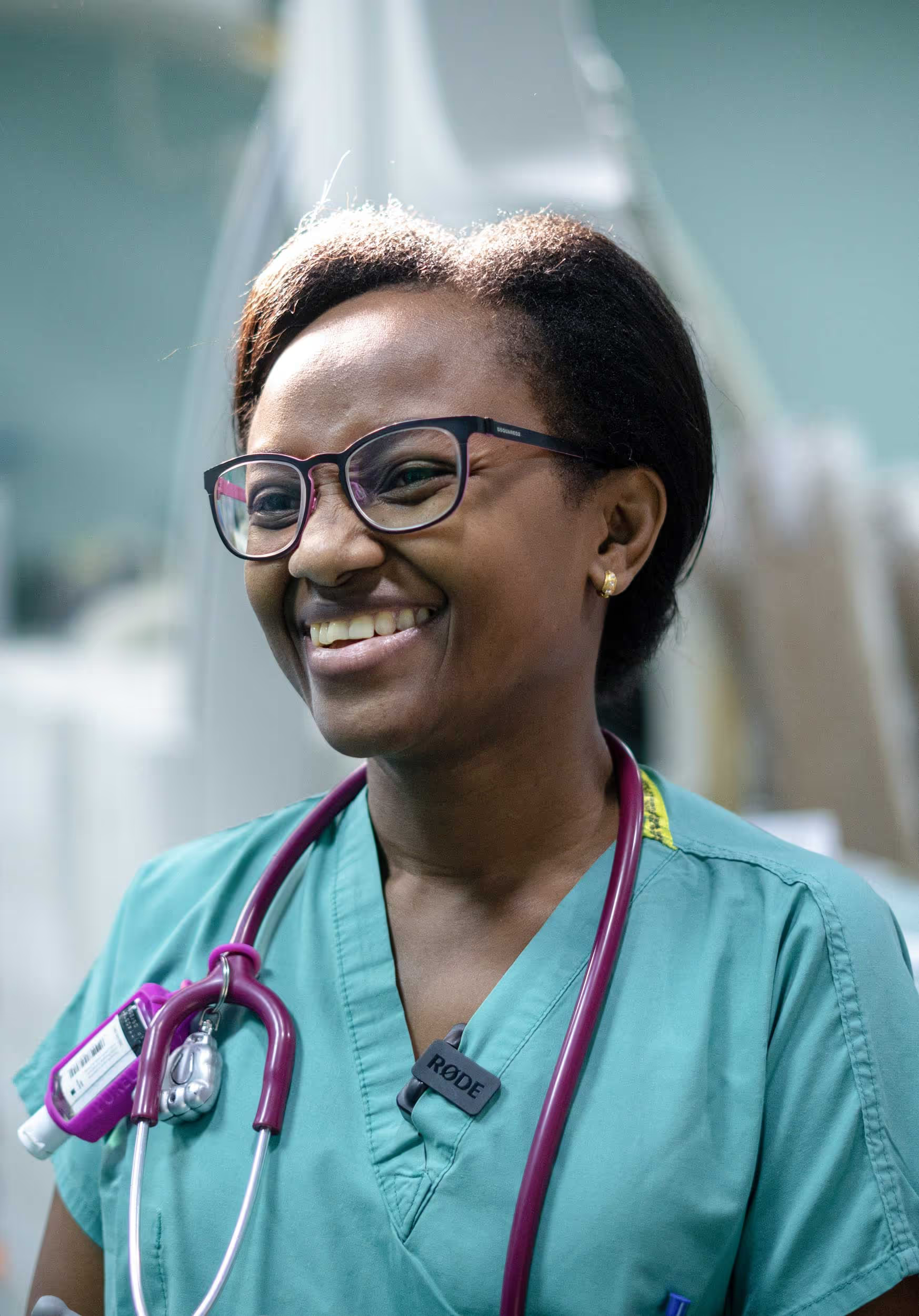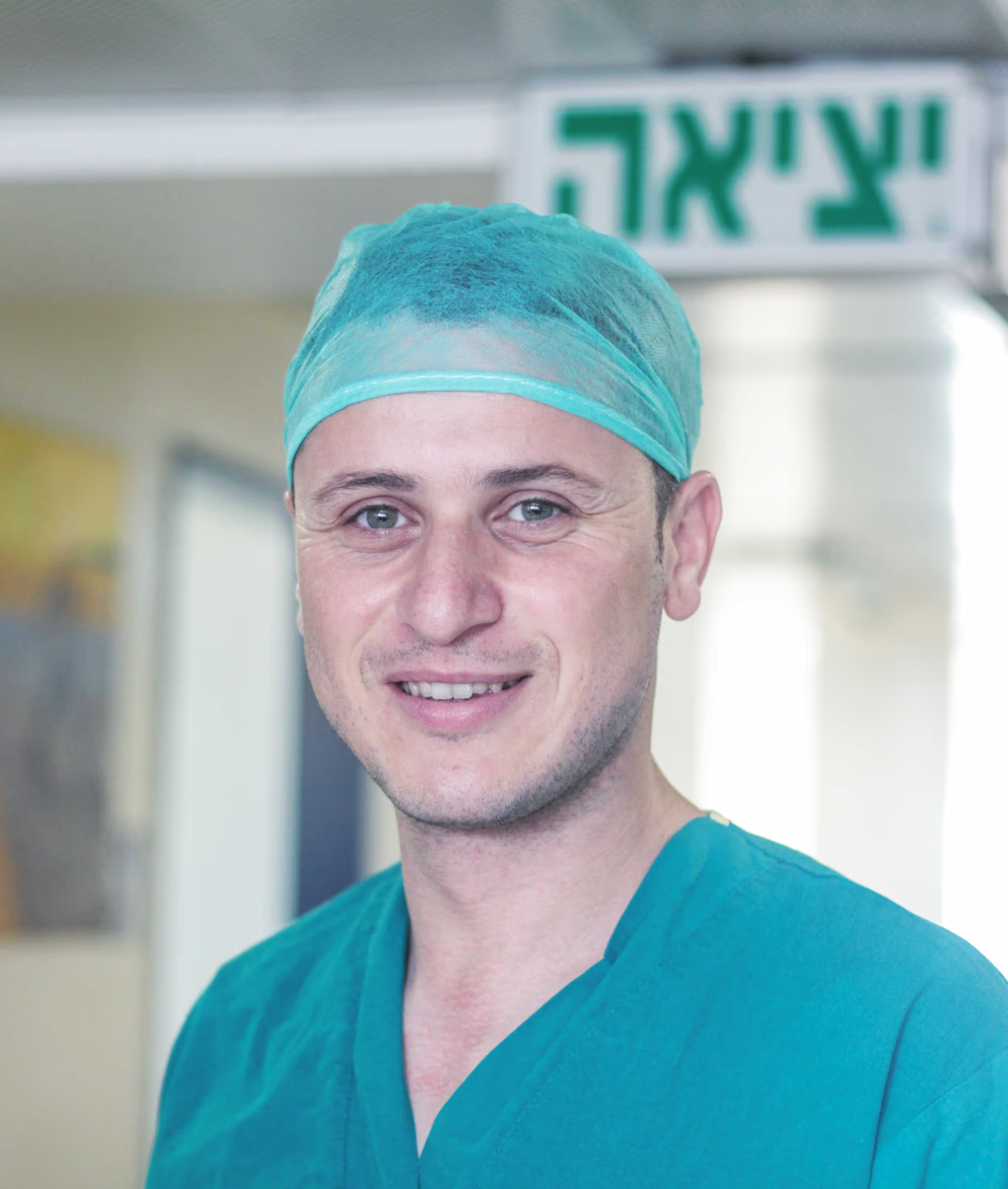Dr. Tolesa is in Israel with Save a Child’s Heart for a 5-year training program in order to advance his skills as an anesthesiologist so he can help save lives in his home country of Ethiopia.
1.Where and when were you born?
I was born on August 21st, 1988 in a small rural village in Ethiopia called Tulu Mara, which is about 300 km from Addis Ababa.
2. What was your family life like?
I grew up in Tulu Mara and lived there until I finished grade 8. After that, I went to boarding school about 50 km away in order to complete high school. I come from a large family, I have 9 siblings – 4 brothers and 5 sisters. We are a close-knit family and we all still live in Ethiopia.
3. Why did you want to become a doctor?
Ever since I was a child I wanted to become a doctor, it was my dream for as long as I can remember. Also, I always did very well in school and this helped me as I moved forward with my studies.
4. What experiences motivated you to pursue medicine?
There was not one specific experience, it was simply a dream I had from childhood and I worked hard to pursue my goal.
5. What medical training have you received and where?
I completed my medical training at Hawassa University in the southern part of Ethiopia. Medical school is 6 years in Ethiopia, including the final internship year which involves gaining practical experience in the university hospital.
6. Why did you choose your specialty?
My original focus was actually on pediatrics, but I ultimately chose to pursue anesthesiology after certain experiences with patients led me down this path.
One experience in particular occurred during my last year of medical school. In the university hospital, there was no ICU, no intensivist and no anesthesiologist, there was only a nurse anesthetist. One evening while I was on call, a pediatric patient come to the ER with severe asthma. We decided that the only option for this patient would be to put him on a mechanical ventilator, however the ventilator was not working, and we had to manually ventilate the patient through the night. Luckily, despite these challenges, the patient recovered.
This experience strengthened my inclination to focus on critical children, which was when I began to start thinking about being an intensive care physician. After discussing this with various professors of mine, I decided the best way to make a difference in intensive care medicine was to enter the field of anesthesia. So, I applied and was accepted to the anesthesiology program at Jimma University.
7. How did you find out about the medical training program in Israel?
Upon completing 1 year in the anesthesiology program at Jimma University, my faculty members told me I should come to Israel for a fellowship in anesthesiology, with a specific focus on pediatric cardiology. My Professor had also been trained at SACH as a cardiologist and over the last number of years, he has been encouraging doctors to pursue training in Israel in order to ultimately establish a complete pediatric cardiac surgical team in Ethiopia (this includes Dr. Yayu who is Ethiopia’s first pediatric cardiac surgeon).
8. Why did you decide to pursue the program with Save a Child's Heart?
I feel that the training program with SACH will provide me with the most advanced knowledge and hands-on experience I need to reach my goal of being able to help critically ill children.
9. What is the status of pediatric cardiac care and/or your specialty in your home country?
In general, it is quite poor as there is a serious lack of anesthesiologists and intensivists throughout the country for adult patients, and even more so for pediatrics. Slowly, we are seeing improvements as the country has opened intensive care units (ICUs) in several hospitals in Ethiopia. For example, Hawassa University, the medical school I studied at, recently opened an ICU. However, the need for further advancements in anesthesiology and intensive care are huge.
10. What motivates you to train and return to your home country to practice medicine?
It is hard to describe how happy I will feel to be able to return to Ethiopia and to provide the care that is so greatly needed. I feel that the skills and training I am receiving in Israel will allow me to bring about positive and lasting changes and to help many children who are currently unable to receive the care they need.
11. How long is your training in Israel for?
My training in Israel is 5 years, and so far, I have been here for 3 and a half years.
12. What experiences have you had so far with Save a Child's Heart that have stuck out to you - can you share a story?
On the first day I arrived, my plane landed in the evening and I was told to go directly to the hospital to talk with the department head. Soon after arriving there, I discovered he wasn’t there but that the vice department head, Dr. Sherman was. He took me directly to the OR, where I was expecting to be only observing. Instead, he allowed me to help him and to engage with the patients from the very first day. I felt impressed by the level of trust he instilled in me. This type of learning environment has allowed me to feel welcome during my time in Israel.
13 What do you enjoy most about being Israel?
In terms of my medical training, I enjoy the learning atmosphere because it is very open and allows for hands-on training. Aside from my training, I enjoy the beaches as this is not something I experience in Ethiopia since it is a land-locked country. The beach in Tel Aviv is very beautiful. It was also interesting to see the old city in Jerusalem and to travel to Jericho, Tiberias, Nazareth, Bethlehem, Jordan and Eilat.
14. What do you miss most about your home life/country?
I miss my wife and our 6-month-old son. We talk and video each other on WhatsApp but I am excited to be able to return home to them soon.
15. What is your hope for the future?
I hope to strengthen the pediatric cardiac centre in Addis Ababa, which is where the
whole team from Jimma University that has been trained at SACH will be working. I feel that we can really make a difference in the lives of many children.
.avif)

